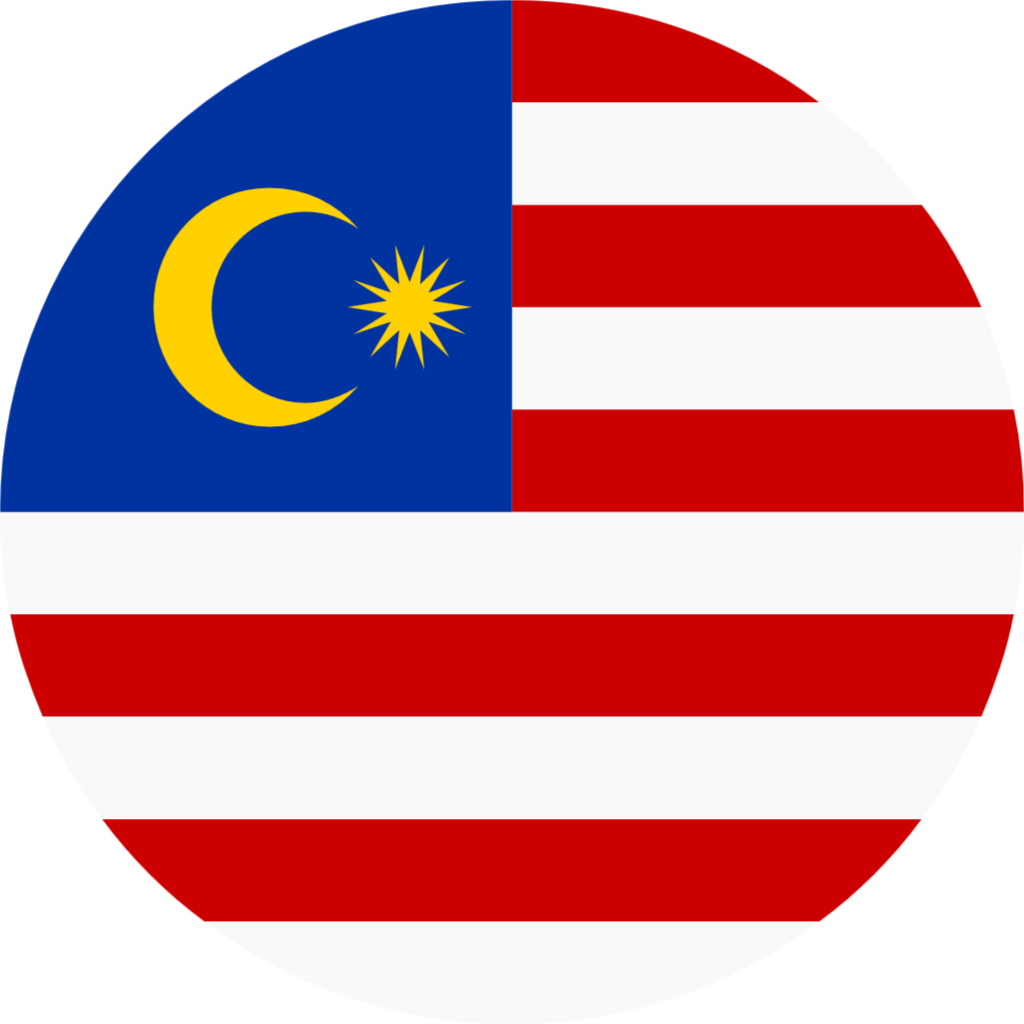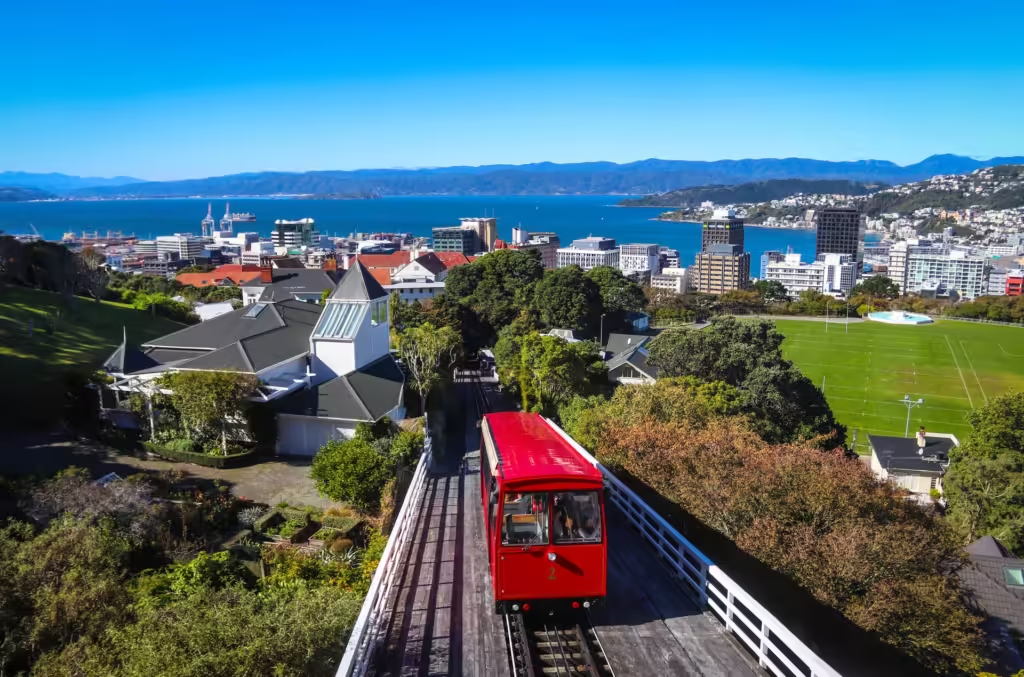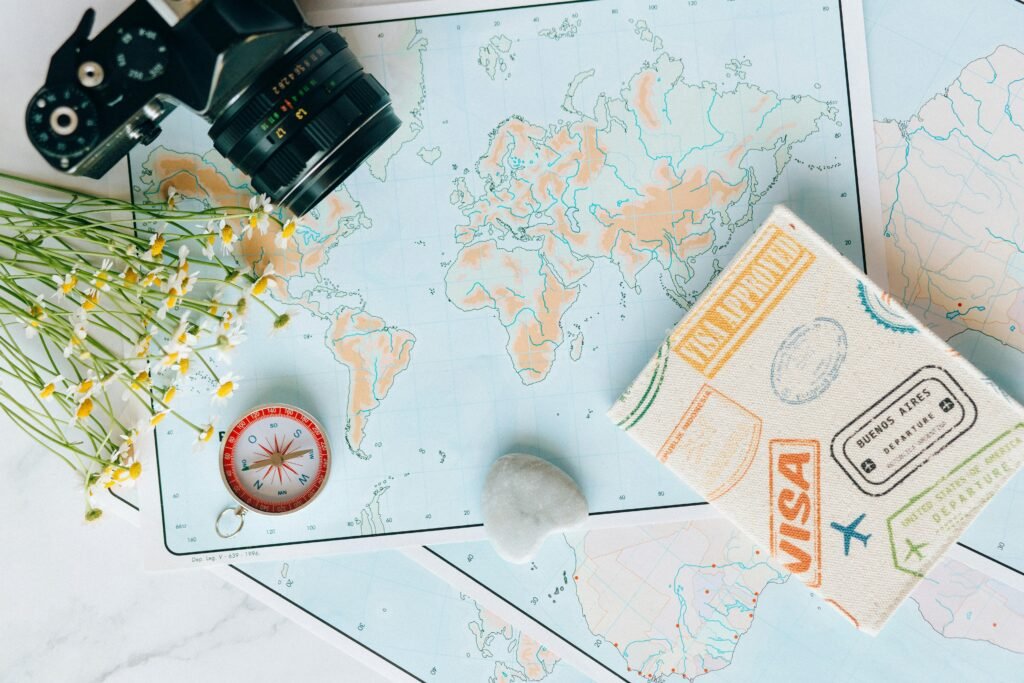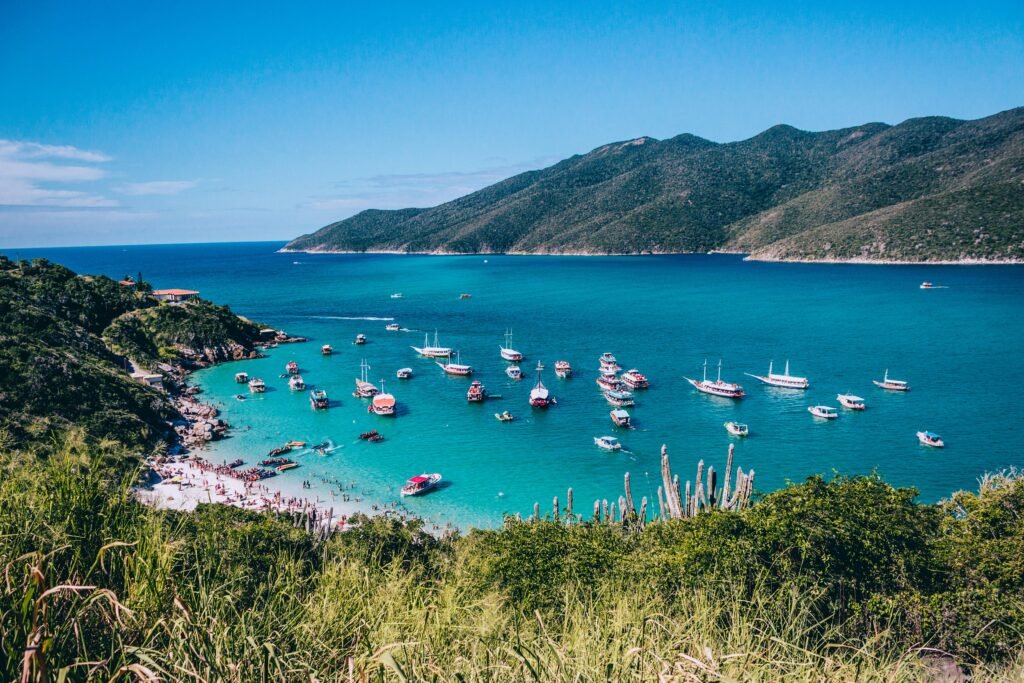Study in Colourful
Malaysia
|
Why Study in Malaysia?
Malaysia offers high-quality education at affordable costs, with internationally recognized degrees through partnerships with top global universities. The country provides a multicultural, English-friendly environment that enriches student life. Its strategic location in Asia, modern infrastructure, and vibrant economy create excellent opportunities for learning, networking, and future career growth.

- Study in
Malaysia
Study Programs in Malaysia
Primary School (Ages 6–12) – Focuses on foundational education in languages, mathematics, science, and moral studies. Both public and private (international) school options are available.
Secondary School (Ages 13–17) – Includes lower and upper secondary levels, offering national curriculum (SPM) or international options (IGCSE, IB). Specializations begin at upper secondary.
Pre-University / Foundation (Ages 17–19) – Options include Malaysian Matriculation, A-Levels, IB Diploma, and university foundation programs that prepare students for undergraduate study.
Diploma Programs (Typically 2–3 years) – Job-ready vocational and technical programs in fields like business, IT, engineering, hospitality, and design.
Bachelor’s Degree (Typically 3–4 years) – Wide range of programs in public and private universities, including dual-degree options with UK, Australian, or US universities.
Master’s Degree (1–2 years) – Coursework, research, or mixed-mode programs in areas such as engineering, business, health sciences, and the arts.
PhD / Doctoral Studies (3–5 years) – Research-based programs with strong emphasis on innovation, especially in science, technology, and social sciences.

- Study in
Malaysia
Step-by-Step Guide
Step-by-Step Guide for Bangladeshi students planning to study in Malaysia:
Step 1: Explore Study Options
Research universities, colleges, and schools in Malaysia. Shortlist programs that match your academic background, career goals, and budget. Consider institutions offering international recognition or dual degrees.
Step 2: Check Entry Requirements
Review the eligibility criteria for your chosen program (e.g. academic qualifications, English language proficiency like IELTS/TOEFL, portfolio for design courses). Ensure you meet the minimum requirements.
Step 3: Apply for Admission
Prepare and submit your application along with required documents (transcripts, certificates, passport copy, personal statement). Apply directly through the university website or via authorized representatives.
Step 4: Secure Offer Letter
If accepted, you will receive a Letter of Offer from the institution. Accept the offer by paying any required deposit.
Step 5: Apply for Student Pass (Visa Approval Letter – VAL)
The institution will typically apply for your Visa Approval Letter (VAL) on your behalf through EMGS (Education Malaysia Global Services). Submit necessary documents: medical report, passport copy, academic papers.
Step 6: Pay EMGS Fees and Undergo Medical Check
Pay EMGS processing fees. Complete the pre-arrival medical examination at an approved clinic in Bangladesh.
Step 7: Apply for Single-Entry Visa
With your VAL, apply for a single-entry student visa at the Malaysian High Commission in Dhaka to enter Malaysia.
Step 8: Travel to Malaysia
Arrange your flights. Carry your VAL, offer letter, medical report, and other key documents. Upon arrival, your institution will help finalize your student pass.
Step 9: Orientation & Settle In
Attend orientation sessions, register with your university, set up essentials (SIM card, bank account), and start your studies.

- Study in
Malaysia
Explore Our Partner Universities
University of Malaya (UM)
Universiti Kebangsaan Malaysia (UKM)
Universiti Putra Malaysia (UPM)
Universiti Sains Malaysia (USM)
Universiti Teknologi Malaysia (UTM)
Multimedia University (MMU)
Taylor’s University
Sunway University
Monash University Malaysia
University of Nottingham Malaysia
INTI International University
SEGi University
HELP University
Asia Pacific University of Technology & Innovation (APU)
UCSI University
Limkokwing University of Creative Technology
Universiti Tenaga Nasional (UNITEN)
Universiti Tunku Abdul Rahman (UTAR)

Job and PR Pathways After Study
New Zealand offers strong post-study work opportunities for international graduates, especially in areas facing skill shortages. With the right guidance, you can transition smoothly from your student visa to work and eventually permanent residency.
Post-Study Work Visa – We support you in applying for the Post-Study Work Visa, which allows you to live and work in New Zealand for up to 1–3 years depending on your qualification level.
In-demand skilled occupations – Get detailed information about New Zealand’s Long Term Skill Shortage List (LTSSL) and Essential Skills in Demand lists, helping you target jobs with better employment and residency prospects.
Career workshops and job readiness – Benefit from workshops focused on CV building, interview preparation, and understanding the New Zealand job market culture.
Skilled migration and PR planning – Receive personalized advice on navigating New Zealand’s skilled migrant visa pathways, including points-based systems and employer sponsorship options aligned with your skills and qualifications.
Our Support During the Process
We’re with you every step of the way—from your initial consultation to settling into New Zealand life and beyond. Our aim is to make your study abroad experience smooth, informed, and successful.
Personalized consultation at every step – We carefully assess your academic goals, financial situation, and personal preferences to help you choose the best study and career pathways.
One-on-one support for admission, visa & travel – Receive dedicated assistance with university applications, document preparation, visa processing, and travel arrangements.
Always accessible—call, WhatsApp, or in person – Our friendly advisors are available via your preferred communication channel whenever you need guidance or answers.
Regular updates, reminders & document reviews – We keep you informed with timely updates, important reminders, and detailed document checks to ensure you never miss a deadline.
Post-arrival check-ins & alumni mentoring – After you arrive, we continue to support you, including connecting you with experienced alumni who can share valuable insights.
Ongoing support for job search and PR planning – We help you navigate job hunting, CV preparation, interview skills, and long-term residency pathways even after you graduate.

- Study in
Malaysia
Average Tuition Fees in Malaysia
Primary School: Around USD 3,000 – 10,000 per year (mostly in international schools)
Secondary School: Around USD 4,000 – 12,000 per year (international schools, depending on curriculum and location)
Diploma Programs: Around USD 3,000 – 7,000 per year
Bachelor’s Degree: Around USD 4,000 – 10,000 per year (public universities); USD 7,000 – 15,000 per year (private universities or international branch campuses)
Master’s Degree: Around USD 4,000 – 9,000 per year (public universities); USD 7,000 – 12,000 per year (private universities)
PhD: Around USD 3,000 – 7,000 per year (often similar for domestic and international students in public universities)

- Study in
Malaysia
Available Scholarships for International Students in Malaysia
Here’s a consolidated list of scholarships available for international students in Malaysia:
Government / National-Level Scholarships
Malaysia International Scholarship (MIS)
Malaysian Technical Cooperation Programme (MTCP) Scholarship
Malaysia Commonwealth Scholarship & Fellowship Plan
Malaysia Global Scholarship
University-Specific Scholarships
University of Malaya Global Excellence / International Scholarship
University Putra Malaysia Graduate Research Scholarship
Universiti Kebangsaan Malaysia (UKM) Premier / Vice‑Chancellor Scholarships
Universiti Sains Malaysia (USM) Global Scholarships / USM Fellowship
Asia Pacific University (APU) Merit Scholarships
Heriot‑Watt University Malaysia Excellence Scholarship
University of Nottingham Malaysia Merit Awards / Developing Solutions Scholarships
Monash University Malaysia International / ASEAN Scholarship
Taylor’s University Scholarships
Sunway University Jeffrey Cheah Entrance Scholarship
INTI International University Scholarships
UCSI University Trust Graduate Scholarship
Foundation / Corporate Scholarships
Yayasan Tunku Abdul Rahman Scholarship (STARS)
Kuok Foundation Scholarship
Yayasan Sime Darby Bursary
Lee Yan Lian Charitable Foundation Scholarship
Sin Chew Daily Education Fund
Albukhary Foundation Scholarships
Yayasan Khazanah Global Scholarship
Petronas Education Sponsorship Programme (PESP)
Maybank / ASEAN-Maybank Scholarship
Sarawak Energy / Yayasan Sarawak Scholar
UEM Group Scholarship
Astro Scholarship
Intel Malaysia Scholarship
Khazanah Nasional Scholarship
Yayasan MRCB Scholarship
Visa Categories for Study in Malaysia

Student Pass
The primary visa for international students enrolled in full-time courses at approved Malaysian educational institutions.

Dependent Pass
Issued to immediate family members (e.g., spouse, children) of Student Pass holders to reside in Malaysia during the student’s study period.

Social Visit Pass (Temporary)
Sometimes used for short-term courses, exchange programs, or internships not exceeding the permitted duration.

Professional Visit Pass (PVP)
Granted for short academic activities such as training, research, or teaching on a temporary basis at Malaysian institutions.

Visa Application Checklist
Malaysia Student Visa Application Checklist (Bangladesh)
Offer/Acceptance Letter from a Malaysian university/college approved by EMGS (Education Malaysia Global Services)
Visa Approval Letter (VAL) issued by EMGS
Valid Passport (minimum 18 months validity from date of entry)
Completed Student Visa Application Form (via EMGS portal or Malaysian High Commission)
Passport-size photographs (white background, as per specifications)
Academic transcripts and certificates (certified copies)
Evidence of English proficiency (e.g., IELTS, TOEFL – if required by the institution)
Medical examination report (from an EMGS-approved clinic or as required before/after arrival)
Proof of financial ability (e.g., bank statement, sponsor letter, affidavit of support)
No Objection Certificate (NOC) (if required by Bangladesh authorities for students below certain age or on government scholarships)
Visa fee payment receipt (EMGS processing fee + visa application fee)
Personal Bond form signed by the institution
Yellow fever vaccination certificate (if applicable, for students transiting through yellow fever endemic zones)

- Study in
Malaysia
Job and PR Pathways After Study
Job and PR Pathways After Study in Malaysia
Job Pathways After Study
International graduates may apply for employment in sectors needing skilled professionals (e.g., engineering, IT, finance, biotechnology, education).
To work legally, graduates must obtain an Employment Pass (EP) sponsored by a Malaysian employer.
Employment Pass approval depends on job type, salary level (usually minimum RM 3,000–5,000/month), and employer’s eligibility to hire foreigners.
Some graduates may secure internships or training schemes that can lead to full-time employment.
PR (Permanent Residency) Pathways
Malaysia does not offer direct PR after study; graduates must work for several years first.
A foreigner may apply for PR typically after 5+ years of continuous residence on long-term employment passes and with strong contributions (e.g., skills, investment).
PR eligibility is enhanced by having a Malaysian spouse, exceptional talent, or significant investment in Malaysia.
The PR process is stringent and assessed case-by-case by the Immigration Department of Malaysia.

- Study in
Malaysia
Our Support During the Process
We’re with you at every step — from your first consultation to settling into life in Australia and beyond, ensuring a stress-free, informed, and successful journey.
Personalized consultation at every stage — We take the time to understand your academic goals, financial situation, and personal preferences to guide you toward the best-fit study options.
One-on-one support for admission, visa, and travel — Dedicated assistance with university applications, document preparation, visa submissions, and travel arrangements.
Always accessible — Connect with us via call, WhatsApp, email, or in person — whatever suits you best.
Regular updates, reminders, and document reviews — Stay on track with timely updates, important deadline reminders, and careful review of your documents.
Post-arrival check-ins and alumni mentoring — We stay connected after you arrive, offering ongoing support and linking you with alumni who’ve successfully made the journey.
Support for job search and PR planning — Guidance on job opportunities, resume building, and advice on permanent residency pathways even after you graduate.





